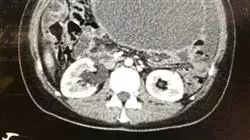University certificate
The world's largest faculty of medicine”
Introduction to the Program
New advances in gynecologic oncology drive us to develop new programs that meet the real needs of experienced professionals, so that they can incorporate new advances into their daily practice”

Ovarian cancer is the fourth most frequent cancer of gynecological origin; however, it is the most lethal. Most of these tumors occur in advanced stages of the disease when survival is only around 30% of cases. Therefore, knowledge of the pathophysiology of the disease and early diagnosis is crucial.
It is essential for specialist physicians to be up to date with the main issues relating to the epidemiology and diagnosis of ovarian cancer, since the wide-ranging advances that are constantly being made and published must be transferred to daily medical practice.
This program is aimed at providing the professional with an update on the epidemiology, causes and the entire diagnostic process for ovarian tumor pathology.
Additionally, graduates will have access to an exhaustive and unique Masterclass, given by a prestigious international expert in Gynecologic Oncology. Therefore, they will be able to update themselves in an agile and simple way on the most recent scientific advances on cancer in the female reproductive system. A unique opportunity to renew their daily clinical practice in diagnosis and treatment of tumors.
Under the tutelage of an international expert in Gynecologic Oncology, you will have access to an exclusive Masterclass that will complement your path throughout the Postgraduate Certificate. Opt for TECH for your update!"
This Postgraduate Certificate in Ovarian Cancer Epidemiology and Diagnosis contains the most complete and updated scientific program on the market. Its most notable features are:
- The examination of clinical cases, presented by specialists in gynecologic oncology and other disciplines: The graphic, schematic, and practical contents with which they are created, provide scientific and healthcare specialization on those medical disciplines that
are essential to professional practice - An update on the epidemiology of ovarian cancer
- Diagnostic techniques and procedures for ovarian cancer
- An algorithm-based interactive learning system for decision-making in the clinical situations presented throughout the course
- All of this will be complemented by theoretical lessons, questions to the expert, debate forums on controversial topics, and individual reflection assignments
- Content that is accessible from any fixed or portable device with an Internet connection
This Postgraduate Certificate will be the best investment you can make in selecting a refresher program for two reasons: in addition to updating your knowledge in Ovarian Cancer Epidemiology and Diagnosis, you will obtain a Postgraduate Certificate issued by TECH Global University"
The program’s teaching staff includes professionals from the sector who contribute their work experience to this educational program, as well as renowned specialists from leading societies and prestigious universities.
The multimedia content, developed with the latest educational technology, will provide the professional with situated and contextual learning, i.e., a simulated environment that will provide immersive education programmed to learn in real situations.
This program is designed around Problem-Based Learning, whereby the professional must try to solve the different professional practice situations that arise during the course. For this purpose, students will be assisted by an innovative interactive video system created by renowned and experienced experts.
You will be able to learn about the latest advances in the Ovarian Cancer Epidemiology and Diagnosis using the latest educational technology”

It includes clinical cases and real images in high definition to bring clinical practice as close as possible to the development of the program"
Why study at TECH?
TECH is the world’s largest online university. With an impressive catalog of more than 14,000 university programs available in 11 languages, it is positioned as a leader in employability, with a 99% job placement rate. In addition, it relies on an enormous faculty of more than 6,000 professors of the highest international renown.

Study at the world's largest online university and guarantee your professional success. The future starts at TECH”
The world’s best online university according to FORBES
The prestigious Forbes magazine, specialized in business and finance, has highlighted TECH as “the world's best online university” This is what they have recently stated in an article in their digital edition in which they echo the success story of this institution, “thanks to the academic offer it provides, the selection of its teaching staff, and an innovative learning method aimed at educating the professionals of the future”
A revolutionary study method, a cutting-edge faculty and a practical focus: the key to TECH's success.
The most complete study plans on the university scene
TECH offers the most complete study plans on the university scene, with syllabuses that cover fundamental concepts and, at the same time, the main scientific advances in their specific scientific areas. In addition, these programs are continuously being updated to guarantee students the academic vanguard and the most in-demand professional skills. In this way, the university's qualifications provide its graduates with a significant advantage to propel their careers to success.
TECH offers the most comprehensive and intensive study plans on the current university scene.
A world-class teaching staff
TECH's teaching staff is made up of more than 6,000 professors with the highest international recognition. Professors, researchers and top executives of multinational companies, including Isaiah Covington, performance coach of the Boston Celtics; Magda Romanska, principal investigator at Harvard MetaLAB; Ignacio Wistumba, chairman of the department of translational molecular pathology at MD Anderson Cancer Center; and D.W. Pine, creative director of TIME magazine, among others.
Internationally renowned experts, specialized in different branches of Health, Technology, Communication and Business, form part of the TECH faculty.
A unique learning method
TECH is the first university to use Relearning in all its programs. It is the best online learning methodology, accredited with international teaching quality certifications, provided by prestigious educational agencies. In addition, this disruptive educational model is complemented with the “Case Method”, thereby setting up a unique online teaching strategy. Innovative teaching resources are also implemented, including detailed videos, infographics and interactive summaries.
TECH combines Relearning and the Case Method in all its university programs to guarantee excellent theoretical and practical learning, studying whenever and wherever you want.
The world's largest online university
TECH is the world’s largest online university. We are the largest educational institution, with the best and widest online educational catalog, one hundred percent online and covering the vast majority of areas of knowledge. We offer a large selection of our own degrees and accredited online undergraduate and postgraduate degrees. In total, more than 14,000 university degrees, in eleven different languages, make us the largest educational largest in the world.
TECH has the world's most extensive catalog of academic and official programs, available in more than 11 languages.
Google Premier Partner
The American technology giant has awarded TECH the Google Google Premier Partner badge. This award, which is only available to 3% of the world's companies, highlights the efficient, flexible and tailored experience that this university provides to students. The recognition as a Google Premier Partner not only accredits the maximum rigor, performance and investment in TECH's digital infrastructures, but also places this university as one of the world's leading technology companies.
Google has positioned TECH in the top 3% of the world's most important technology companies by awarding it its Google Premier Partner badge.
The official online university of the NBA
TECH is the official online university of the NBA. Thanks to our agreement with the biggest league in basketball, we offer our students exclusive university programs, as well as a wide variety of educational resources focused on the business of the league and other areas of the sports industry. Each program is made up of a uniquely designed syllabus and features exceptional guest hosts: professionals with a distinguished sports background who will offer their expertise on the most relevant topics.
TECH has been selected by the NBA, the world's top basketball league, as its official online university.
The top-rated university by its students
Students have positioned TECH as the world's top-rated university on the main review websites, with a highest rating of 4.9 out of 5, obtained from more than 1,000 reviews. These results consolidate TECH as the benchmark university institution at an international level, reflecting the excellence and positive impact of its educational model.” reflecting the excellence and positive impact of its educational model.”
TECH is the world’s top-rated university by its students.
Leaders in employability
TECH has managed to become the leading university in employability. 99% of its students obtain jobs in the academic field they have studied, within one year of completing any of the university's programs. A similar number achieve immediate career enhancement. All this thanks to a study methodology that bases its effectiveness on the acquisition of practical skills, which are absolutely necessary for professional development.
99% of TECH graduates find a job within a year of completing their studies.
Postgraduate Certificate in Ovarian Cancer Epidemiology and Diagnosis
Ovarian Cancer is one of the most lethal cancers in Gynecology, even though it is not the most frequent. Most cases are detected in advanced stages, resulting in a survival rate of 30%. It is crucial, therefore, that health professionals handle the Pathophysiology of the disease and be updated in early diagnosis to improve patient outcomes, something in which they will be able to prepare themselves with guarantees through this Postgraduate Certificate in Ovarian Cancer Epidemiology and Diagnosis.
Enhance your skills in the approach to ovarian tumor pathology
The Postgraduate Certificate in Ovarian Cancer Epidemiology and Diagnosis is designed to update you on the epidemiological factors, causes and the diagnostic process of female ovarian tumor pathology. Through the program, you will hone the skills and knowledge necessary to provide specialized and up-to-date medical care, always in line with the latest scientific evidence. All this and more will be at your fingertips in just 175 hours of an innovative academic journey in which you will push your skills to the limit with demanding case studies and in which you will consult videos or dynamic interactive diagrams. All this from home thanks to its online nature.







